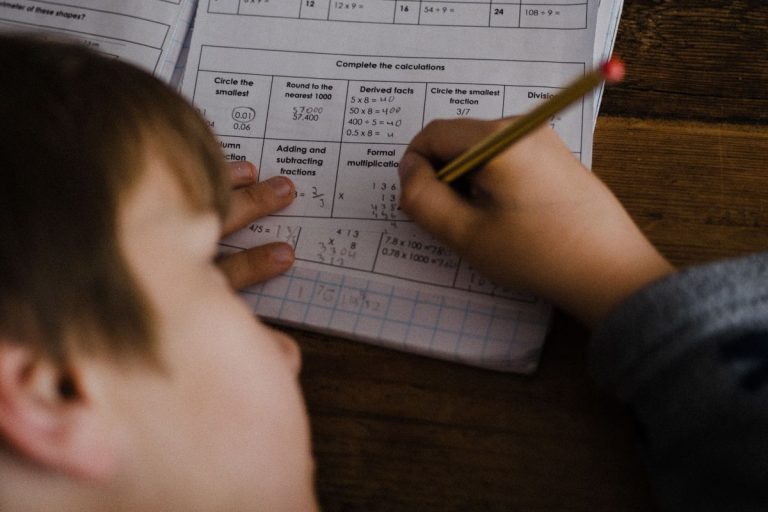Maths is a craft that’s important to learn. Used on a daily basis throughout our entire lives, it’s important to know what exactly to revise for your Maths GCSE Foundation.
When it comes to your maths exams, practice makes perfect. But where do you start, exactly?
Foundation maths contains a lot of different content that you need to carefully revise and fully come to grips with. Today, we explore what foundation maths is all about, the most common topics, and cover your frequently asked questions. Let’s dive in!
What is Maths GCSE Foundation
Maths GCSE Foundation is the lower of two papers that students can choose from when sitting their all-important GCSEs. It covers a range of grades with the highest grade possible being a Grade 5.
Foundation tiers have a greater focus on both numeracy and ratio topics, whereas Higher tiers tend to focus on more advanced subjects such as Algebra.
Achieving a Maths GCSE Foundation Grade 4 or above is often enough to see you through to colleges and most jobs. However, if you are looking to join a university or pursue a career which requires a higher grade, you should be aiming to achieve a higher tier maths qualification.
Here’s what to revise for maths GCSE foundation
Maths GCSE Foundation covers a wide range of subjects, including fractions, percentages, and equation solving. Let’s dive into each of these.
Fractions
A fraction represents a part of a whole or any number of equal parts. It describes how many parts of a certain size there are most known as “one-half”, “two-thirds”, and so on.
In real life, we tend to use fractions more often than we think. For example, during shopping trips, there may be a 25% discount from the initial purchase price, or, when we are baking or cooking, we may need to use an exact amount of a certain ingredient to make sure it tastes right.
Ultimately, understanding at least basic fractions is a great skill for navigating through our daily lives.
Percentages
A percentage is a measurement split into one hundred equal parts or more commonly seen as “out of 100”. Each part is one percent of the whole thing (100).
A great tool for using in our daily lives, having a good understanding of how percentages work can seriously help us with managing our finances. You may use percentages to work out discounts in shops, bank interest rates, inflation rates, and more.
Solving Equations
Solving an equation is ultimately finding a solution. To do so, we need to work out the value of the variable by adding, subtracting, multiplying, or dividing both sides of the equation by the same value.
Whether we realise it or not, we solve equations almost daily! From the number of hours you work versus the rate of pay to simply budgeting your monthly bills and expenditure, being able to solve equations is a key skill in navigating through life.
Angle Facts
Geometry and shape make up large parts of the GCSE maths course. Most of us know that the angles in a triangle add up to 180 degrees, however, there are many more variables to angles and working out their total degrees.
We use angle facts in our life at some point, for example, buying a new couch! You will need to make sure that the measurements of the couch will fit nicely into its designated position. For the more advanced, careers such as architects, engineers, and mathematicians will require an excellent knowledge of angles.
Area, Perimeter, Volume
Area, perimeter, and volume represent the distance, area, and volume of a shape.
There are many times throughout our lives when we need to have a good understanding of this. Examples include times when we want to change our carpets with good old-fashioned measurements and gardening!
Maths GCSE Foundation FAQs
Is GCSE foundation maths hard?
The good news is that, with dedication and hard work, passing your Maths GCSE Foundation can easily be achieved.
Typically, the exam requires students to break down mathematical problems into smaller chunks (commonly known as “workings”) in order to solve them.
For some, picking up maths comes naturally to them while others can struggle with it. There is no one size fits all with the time it takes to fully understand maths! If an individual is finding it difficult to grasp certain concepts, the wise choice would be to seek a reputable tutor for one-to-one sessions. This is particularly true if your dream university or career requires a higher level of maths!
Our advice would be to dedicate your time to the craft all while remaining positive and not being too hard on yourself. Comparing your maths abilities to others is a surefire way to lose motivation.
How do you get full marks in foundation maths?
To achieve full marks in Maths GCSE Foundation, you will need to answer every question and get all of them right!
While this might not be entirely possible for every individual, it’s important to note how exactly marks are given:
- Using an appropriate method to answer the question
- Facts found as you work through a question (known as your “working”)
- The final answer
Final thoughts
Maths GCSE Foundation is extremely achievable and is something that you should strive for. Since we use maths on a daily basis, having at least a basic understanding of concepts will serve you well when it comes to both your finances and daily tasks.
If you feel that you are struggling with grasping maths, we recommend that you find a tutor. Not only will this increase your confidence, but it will also serve you well in achieving a passing grade.




